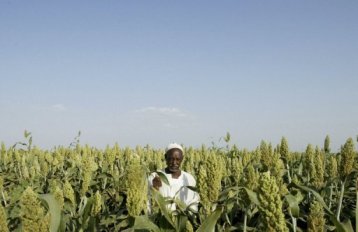Sudan’s Gezira agricultural project is failing, governor says
March 12, 2013 (KHARTOUM) – The governor of Sudan’s Gezira state al-Zubair Bashir Taha slammed a government law adopted in 2005, saying it has done nothing to improve productivity of the country’s largest agricultural scheme that contains one of the world’s biggest irrigation projects.

There has long been a struggle between farmers and the government over ownership of the land as Khartoum wants to ensure it has control over the project in order to make it subject to its economic and agricultural policies.
The Gezira governor, who addressed a committee tasked with evaluating the project, said that seven years after the law was enacted there has been no improvement in productivity which has led to increased unemployment and displacement of entire families due to the closure of textile mills and other factories that were benefiting from the project.
He urged the government to either annul or amend the law which he said hit production of cotton and other crops compared to the pre-law period.
Taha also criticised the fact that the Gezira project’s administrators are not accountable to a higher body, as well as the non-existence of a general assembly to govern it.
He proposed giving his state a stake in the project in terms of administration and overseeing it and noted that the scheme has not benefited from development loans received by the country over the years.
The Sudanese government has long pledged to bring about a turnaround in the project in order to make it the breadbasket of the country and beyond.
But farmers say none of that has come to pass due to spiralling production costs which have eaten into their margins, with many were jailed over outstanding debt.
Observers say that the eroding value of the Sudanese pound has also raised the cost of imports such as fertilisers and other materials.
(ST)
